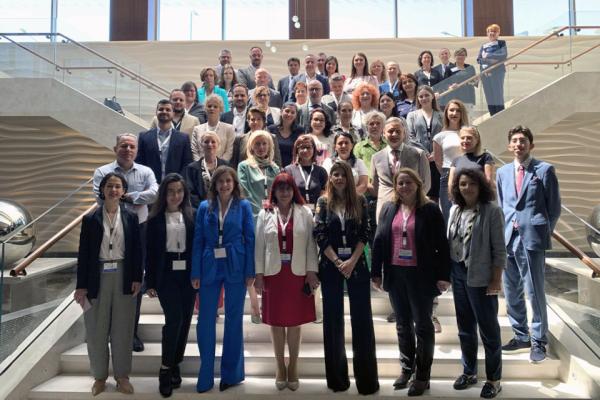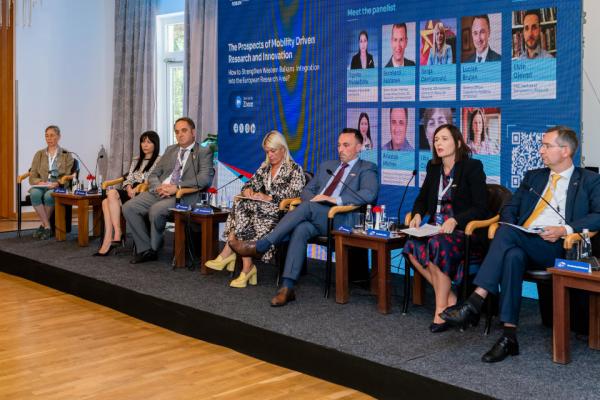Policy background
The Western Balkans consists of Albania, Bosnia and Herzegovina, North Macedonia, Montenegro, Kosovo * and Serbia. All have a perspective to accede to the European Union and hence are also called 'enlargement countries'.
*This designation is without prejudice to positions on status, and is in line with UNSCR 1244 and the ICJ Opinion on the Kosovo declaration of independence
A European Council meeting in 2003 adopted the 'Thessaloniki agenda for the Western Balkans: Moving towards European Integration'.
The EU's enlargement policy (COM(2015)611: EU Enlargement Strategy, COM(2016)715: 2016 Communication on EU Enlargement Policy) underlines the necessity to invest in peace, security and stability. It stresses that an accession process offering a credible prospect of EU membership is vital to enhance the resilience of countries in the Western Balkans (EEAS Global Strategy: 'Shared Vision, Common Action: A Stronger Europe, A Global Strategy for the European Union’s Foreign And Security Policy', 06/2016) and to spur transformation in these countries.
As of 2016 the innovation dimension was added to the structural reform agenda of the national Economic Reform Programmes (N.B. As of 2015, all candidate countries and potential candidates submit annual Economic Reform Programmes (ERPs) that mimic the European Semester process). These programmes contain a structural reform agenda to boost competitiveness and improve conditions for growth and job creation.
In 2021, The European Union developed with the Western Balkans a forward-looking Agenda on Innovation, Research, Education, Culture, Youth and Sport.
Agenda on Innovation, Research, Education, Culture, Youth and Sports
This agenda outlines a comprehensive, long-term strategy for cooperation with the Western Balkans.
Through increased investment, the agenda and its proposed actions will contribute to developing the region’s economic and societal development.
The EU supports stronger cooperation between the Western Balkans’ stakeholders and EU countries to successfully implement the deliverables of the agenda.
The agenda and its action plan is built on 3 main pillars: Political, Thematic, and Regional.
Political agendaTowards a sustainable future by stimulating an economy that supports the recovery and helps to create jobs |
|
Thematic agendaTowards closer alignment with the EU strategic priorities |
|
Regional agendaTowards a closer regional economic integration through planned investments in human capital development and digital transformation |
|
Documents
Funding opportunities
Horizon Europe
Horizon Europe is the EU’s key funding programme for research and innovation with a budget of €95.5 billion available over 7 years (2021 to 2027).
Projects and results
BLUEAIR project: Blue Growth in the Adriatic-Ionian Region
The results of the BLUEAIR project will be felt most concretely by people on the shores of the Adriatic and Ionian Seas in better coordination of marine surveillance and more careful management of marine ecosystems, but also in crucial matters such as forecasted increasing high-sea levels.
Research project database (CORDIS)
EU-funded projects involving the Western Balkans
Project success stories
Stories of particularly successful EU-funded research projects.
Contact
National Contact Points
The National Contact Points (NCPs) provide guidance, practical information and assistance on all aspects of participation in Horizon Europe.
Documents
Latest

- News article
The event brought together senior government officials and key stakeholders from the European Commission, Western Balkan economies, and other relevant organisations to discuss the latest developments and priorities.
- 1 min read

- News article
Tirana Civil Society and Think Tank Forum (CSF) 2023 of the Berlin Process organised by the Open Society Foundations - Western Balkans in collaboration with the Hellenic Foundation for European & Foreign Policy (ELIAMEP) and with the Cooperation and Development Institute (CDI).
- 1 min read
